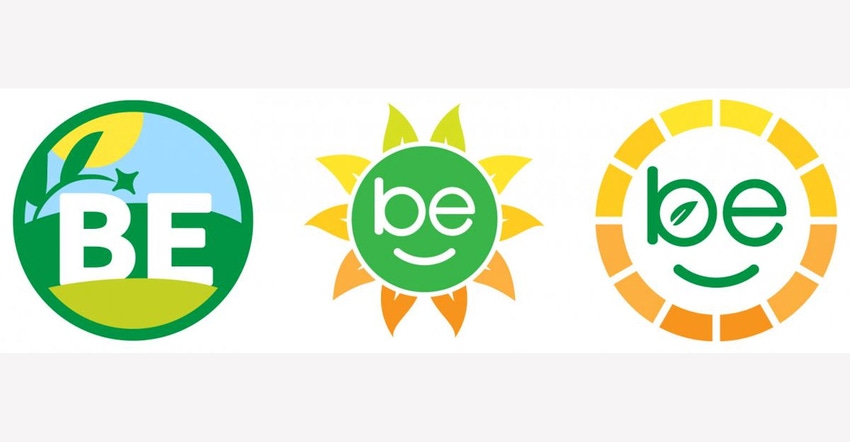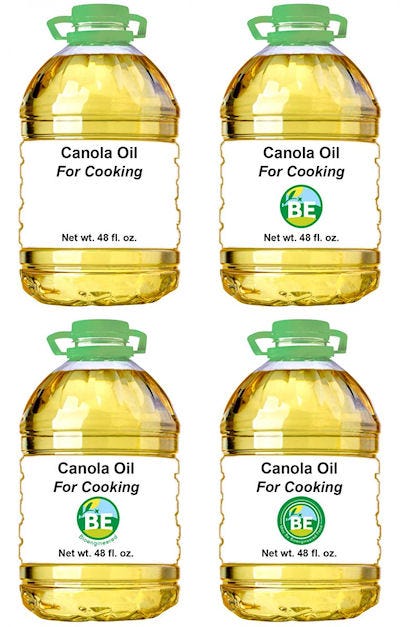Consumers in Vermont more accepting of GMO technology once label required, while IFIC survey finds over half of consumers avoid GMO foods.

As the U.S. Department of Agriculture digs into establishing a mandatory label for foods that may contain genetic modified organisms (GMOs), new information finds that labels have a high impact on consumers. The verdict is still out on the overall impact, with an International Food Information Council (IFIC) survey finding that nearly half of U.S. consumers avoid GMO foods.
USDA’s Agricultural Marketing Service (AMS) must disclose “bioengineered” (BE) foods and has proposed several potential “friendly” labels, including a sun with a smiling face or a plant and sun with the letters “BE.”

The IFIC Foundation tested reactions to the three BE labeling symbols and two variations of text disclosures. In every combination, levels of concern across a variety of factors increased — often substantially — when a disclosure label was applied.
When shown the bottle without any disclosure, almost one-third (31%) of a group of respondents had human health concerns, but that rose to 50% when shown the BE “plant” symbol and further increased to 51% when text was added to indicate that the product was “bioengineered,” and to 57% when “may be bioengineered” was added to the plant logo. Human health concerns almost always showed the greatest increase, compared to other factors such as animal health or environmental concerns.
The vast majority (85%) of those who avoid GMOs do so for human health concerns, with the environment (43%), animal health (36%) and agriculture/farming (34%) concerns trailing far behind.
“Despite broad scientific consensus that GMOs are safe to consume, a majority of Americans seem to be convinced otherwise. It’s a significant disconnect, and it underscores the need for more creative public education on the science behind our food,” IFIC Foundation chief executive officer Joseph Clayton said.
Vermont’s case study
A new study suggests that labels may, in fact, reduce opposition to GMOs.
Vermont has mandatory food labeling in place already. A study released in Science Advances showed that opposition to GMOs in Vermont actually fell relative to the rest of the U.S. after mandatory labeling was adopted in the state.
The study was co-authored by Jane Kolodinsky, professor and chair of the department of community development and applied economics at the University of Vermont and a fellow of its Gund Institute for the Environment, and Jayson Lusk, dean of agriculture at Purdue University.
The analysis showed that opposition to GMO foods fell 19% in Vermont after the implementation of mandatory labels. “The findings help provide insights into the psychology of consumers’ risk perceptions that can be used in communicating the benefits and risks of genetic engineering technology to the public,” the study report noted.
Kolodinsky said the findings “put to bed the idea that GMO labels will be seen as a warning label.” She added, “What we’re seeing is that simple disclosures, like the ones implemented in Vermont, are not going to scare people away from these products.”
Lusk noted in a blog post that the results do not suggest that people will suddenly support GMOs once mandatory labels are in place. “Rather, our findings suggest that people will be somewhat less opposed than they were prior to labels,” he explained.
Claims can affect consumer purchases
The survey also seeks to understand how statements about GMOs or GMO-free claims stack up against other front-of-package labels. Several claims rank higher than GMO-free claims. In fact, when given a list to choose from, the top labeling claims consumers seek out when buying food are:
All natural, 100% natural or natural (71% when purchasing for themselves and 72% for their families).
• Raised without antibiotics (71% for themselves and 72% for their families).
• Sustainable (62% when purchasing for themselves and 63% for their families).
• Locally sourced (61% when purchasing for themselves and 63% for their families).
• USDA Certified Organic (60% for both themselves and their families).
GMO-free claims such as “Not made with genetically modified ingredients” and “Non-GMO Project Verified” were both important to more than 55% of consumers, significantly below any type of natural claim as well as several others.
However, the presence of a BE logo reduces what consumers would be willing to pay for a product versus one without a logo. For instance, respondents indicated that they would be willing to pay an average of $2.96 for a container of squash soup with no BE disclosure, but the tolerated price fell when various BE symbols were applied.
Consistent with labeling claims sought by consumers, however, the tolerated price actually rises much closer to that of the unlabeled product if “all natural” or “sustainable” is added to a package alongside the BE symbols. In one case, the tolerated price with a BE disclosure and “all natural” was, in fact, equal to the product with no BE disclosure.
“Even though consumers have very individualized beliefs about the meaning of many front-of-package claims, it’s clear that ‘natural’ and ‘sustainable’ are powerful motivators for certain consumers,” said Alexandra Lewin-Zwerdling, vice president, research and partnerships, at the IFIC Foundation.
About the Author(s)
You May Also Like




.png?width=300&auto=webp&quality=80&disable=upscale)
